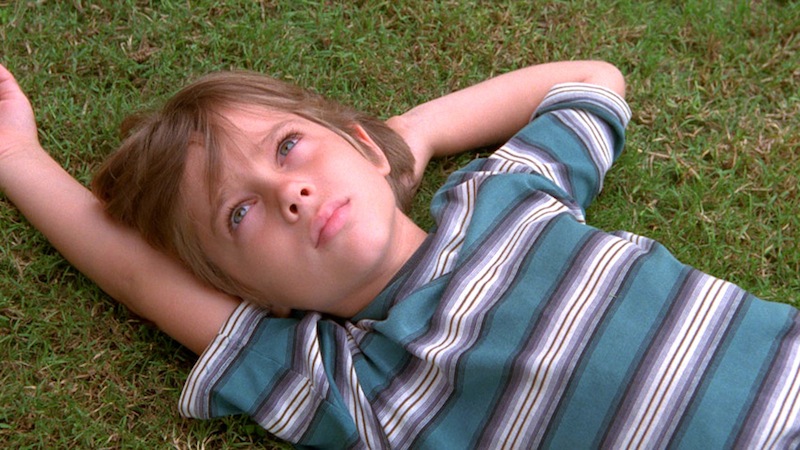Boyhood
Alissa Wilkinson
 Richard Linklater made a movie about growing up called Boyhood. He cast a six-year-old boy named Ellar Coltraneto play Mason, an ordinary American boy growing up in ordinary American suburbs. Then he shot the story of Mason’s life over twelve years, ending as he graduates from high school and moves into his first dorm room in college.
Richard Linklater made a movie about growing up called Boyhood. He cast a six-year-old boy named Ellar Coltraneto play Mason, an ordinary American boy growing up in ordinary American suburbs. Then he shot the story of Mason’s life over twelve years, ending as he graduates from high school and moves into his first dorm room in college.
There’s no plot to Boyhood. Or there is—Mason gets older, and so does everyone else. But that barely qualifies as a “story.” There isn’t a central conflict, exactly. There’s no motivation, no villain, no three-act structure with a climax and a resolution.
And yet the movie is gripping, in my opinion; funny and sweet, sometimes heartbreaking. It’s also gentle. You can sort of settle back into it and let it remind you of the best—and some of the not-best—bits of your own childhood.
This is a marvel to me, because as a writer of nonfiction I struggle all the time to shape “what happened” into a story. Bare facts don’t make a story. For writers of creative nonfiction, bare facts are the building blocks. Your job is to put them together so they make something with shape and meaning and substance—and something that will help the reader live her own life through yours.
The measure of a good memoir or personal essay, then, is that at the end the reader has not just learned something about you, the writer, but also something about themselves. They have navigated a trial, or relived an experience, or been given a roadmap for something they have not yet encountered. They have been put through an emotional experience and experienced a sort of holy catharsis, an empathy.
The story of Boyhood—perhaps more than any other film I can remember seeing—is unique, in that it is just as much about you out there in the audience as it is about Mason up on the screen. Watching the film leaves you feeling as if you’ve just relived your own childhood. It feels, oddly, as if you’ve been given a second passage into adulthood. Mason, and Linklater, have empathized with you. You leave the theater, and step into the light, and know yourself better.